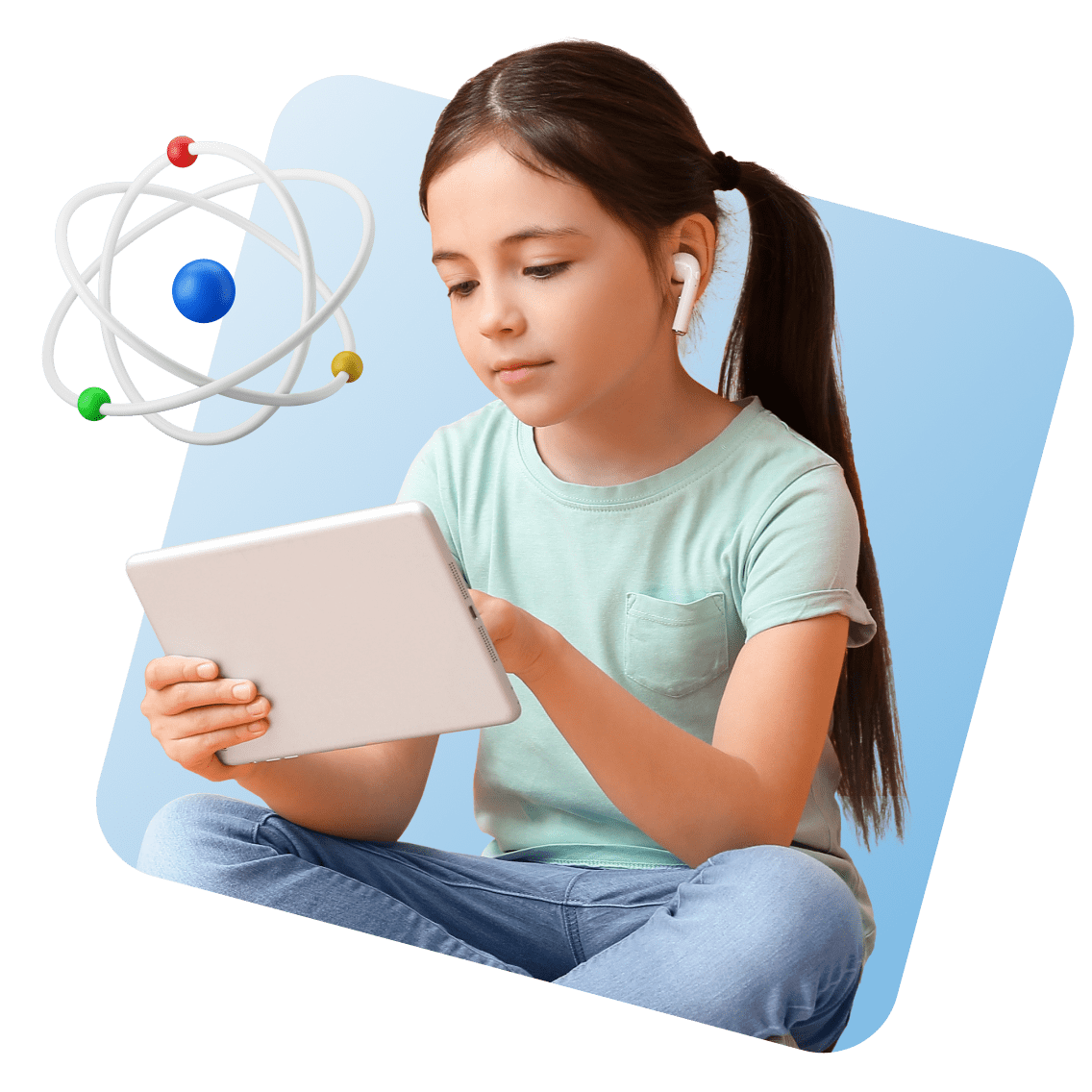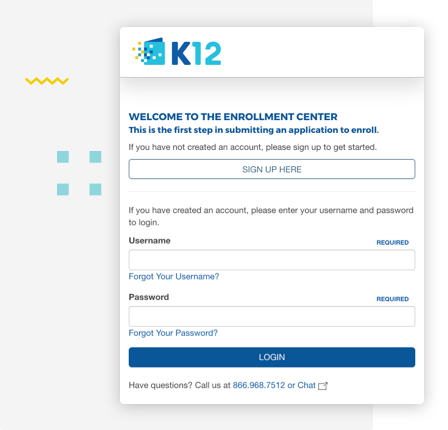Frequently Asked Home-Schooling Questions
How does online homeschooling work?
Traditional homeschooling requires parents to fulfill the role of their child’s teacher, creating lesson plans and tracking progress to ensure their student is keeping up with state-specific learning standards. Although K12-powered online schools are not homeschool programs, they’re great alternatives to homeschooling. K12 offers a wide array of homeschooling curriculum for purchase, but we also offer full-time, teacher-supported education options, such as K12-powered tuition-free* public schools—which share the same requirements and benefits of brick-and-mortar public schools—and tuition-based private schools. Check out the FAQs below to learn more about how K12-powered online schools work.
FAQs
K12-powered online schools offer programs and curriculum designed to accommodate a multitude of learning styles. Whether your child needs extra support or seeks a greater learning challenge, K12-powered schools provide an online education that fits their needs. Over 1 million students have chosen a K12-powered online education as an alternative to traditional brick-and-mortar schools and homeschooling.
Yes. While K12 does offer homeschoolers a wide array of curriculum for purchase, K12-powered schools are not the same as homeschool. Unlike traditional homeschooling, where parents choose curriculum and hold primary responsibility for instructing their children, K12-powered schools include a quality curriculum and provide teacher support and instruction. Parents can choose from tuition-free and tuition-based online school options that share the same requirements and benefits of brick-and-mortar schools.
K12-powered online schools offer greater flexibility and a more personalized approach to learning that can benefit many students. Students can thrive with an engaging, interactive curriculum that combines online, teacher-led lessons with hands-on activities as well as a supportive community of instructors, counselors, administrators, and peers.
A parent (or another responsible adult) acts as their child’s Learning Coach. In grades K–5, the Learning Coach works with the teacher to help their child through the daily lessons, modifying the pace and schedule as needed. The Learning Coach manages the student’s schedule and ensures that work is being completed at a reasonable pace, while teachers monitor progress, ensure mastery, and develop specific intervention plans when a child is struggling. As students transition into middle school, students become more self-sufficient, relying on the Learning Coach for guidance as they begin developing time-management skills. In high school, the Learning Coach role changes to one of oversight—still an important supportive role to help the student stay on task and ensure they’re following through on assignments. During high school, though, students are expected to manage their own time and academic schedule independently.
Socialization is an important element of a K12-powered online education. Throughout the year, students can participate in school outings, field trips, and other social events.** These outings and activities may include trips to museums, skate parks, zoos, clubs, student government, dances, and even graduation ceremonies. Students can participate in online discussions and forums that aren’t based on geography but on shared interests. They can also join a wide variety of school-based or K12 clubs—some student-led, some headed by teachers—covering myriad topics of interest and connecting them to their peers across the nation.
Costs vary depending on which option you choose. K12-powered online public schools, available in many states, are tuition-free.* We offer a variety of private school options as well, each of which has its own fee structure. You can also purchase courses directly for supplemental or independent homeschool use.
To enroll in a K12-powered public or private school, you’ll need to have some basic computer equipment and a reliable internet connection to submit the appropriate application materials. Some public school options are able to provide a school-owned computer for student use. Check with your school directly to learn if a loaner computer can be provided. For more specific information on computer requirements, take a look at our Technical FAQs.
Find a homeschool alternative near me.
Ready to enroll? Read more about our enrollment process or use the School Finder tool to find a K12-powered school near you!

